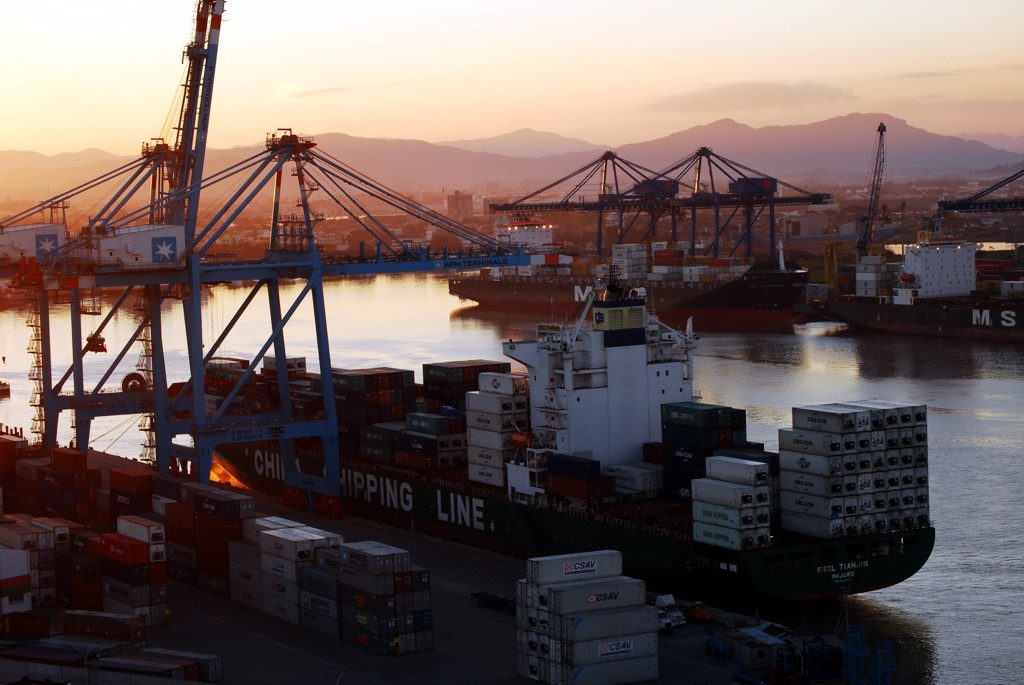São Paulo – After a deficit in the third week of January, Brazilian trade balance showed a surplus in the fourth week, with a positive balance of USD 618 million, the result of USD 3.62 billion shipped and USD 3.002 billion in imports. In the accumulated of the month, exports reached USD 16.27 billion and imports USD 14.13 billion, a USD 2.14 billion surplus. Information was published this Monday (28) by the Ministry of Economy.
Exports averaged USD 724 million, 25.6% less than the average in the third week, driven by a drop in exports in the three categories of products. Semi-finished goods dropped by 36.2% to USD 101.5 million, due to celluloses, raw sugar, semi-finished iron and steel, semi-finished gold, and raw aluminum; finished goods dropped by 26.2%, down to USD 288.9 million, due to oil extraction platforms, gas, orange juice, ethanol, earthmoving machinery; and basic goods dropped by 21.1% down to USD 333.5 million, due to raw oil, iron ore and its concentrates, soy, soy bran, and raw cotton.
Imports showed a 29.9% decrease over the same comparative period, down to an average of USD 600.4 million per working day in the fourth week, due to the decrease in expenses with organic and inorganic chemicals, fuels and lubricants, household appliances, aircrafts and parts, and steelworks.
In the accumulated of the month, comparing the average until the fourth week of 2019 January with the same period in 2018, there was a 16.8% growth in exports, reaching USD 906 million, due to an increase in sales in the three categories: finished goods increased by 25.2%, up to USD 362.9 million, due to oil platform, planes, fuel oils, motor parts and turbines for aircrafts, and gas; semi-finished goods increased by 19.7%, to USD 143 million, because of cellulose, semi-finished iron and steel products, iron alloy, raw cast iron and Spiegel iron, and semi-finished gold; basic goods increased by 15.9%, up to USD 398 million, specially due to an increase in sales of corn, soy, raw oil, iron ore and its concentrates, and soy bran.
Imports daily average increased by 21.6% in the same comparison, reaching USD 758.3 million. Purchases of aircrafts and parts grew 99.2%; fertilizers 80.8%; organic and inorganic chemicals 12.8%; plastic and plastic products 8%; and mechanical equipment 3.8%.
Translated by Guilherme Miranda




